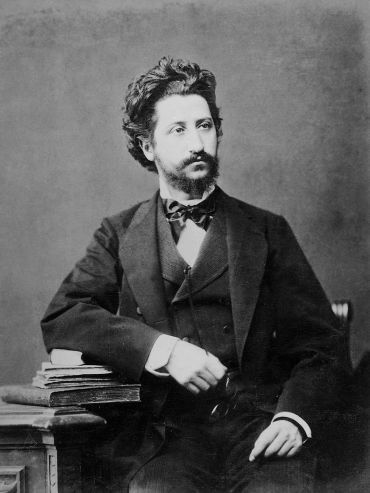
This free digression may seem misplaced and off topic, but in reality it is not. What is it, then, this intellectual pollution? It is not the incoming thought, but rather the polluted way of thinking, by which religion under cover inserts everything which it considers ‘authentic’, but which in reality is a deadly poison.
BY KHALIL NASIR
THIS THOUGHT, disguised by religion, but which is full of Christian or Jewish apocrypha and false, distorted interpretations, comes about consciously or unconsciously mostly through our own weaknesses, from ignorant people who understand everything literally, from great thinkers who at times inadvertently adopted weak or fabricated hadiths to maintain a point. This is the intellectual pollution they suffered from, or even proactively promoted. There is nothing more dangerous to Islamic thought than Muslims themselves, those who are only interested in digging up the past and tarnishing the image of Muslims. So how are we to respond to them? How can we face up to them? One weapon in our arsenal is discussion, but it is not enough. Some painstaking hard work is required, not just shutting doors and windows to prevent intellectual currents from clashing with us and causing some form of cross-pollinating. There is no point in issuing accusations left and right. This is not what is needed at all.
There is nothing more dangerous to Islamic thought than Muslims themselves,
Here the question of Orientalists comes to mind. These have had the finger of accusation pointed at them. Some have deserved it, others haven’t. Regardless of their intentions, whether malicious or simplistic, they actually studied Islamic thought, took from it and derived benefit from it, and extracted from it what was useful. But none of them are known to have fabricated a hadith or falsely attributed it to the Prophet. Rather, every hadith that they cited came from the existing books of Islamic heritage, whether these were printed or in manuscript form. Who has stood up to them or held them accountable? It is not enough simply to say, for example, that what the Orientalist scholar Goldziher mentioned or narrated was a diverted or weak hadith or not reliable, when Goldziher was simply relying on Islamic books – written by Muslims and recognized and lauded by Muslims.
Goldziher was one of the most experienced and profoundly knowledgeable in the field of prophetic hadith. In his studies he dealt extensively with the development of hadith, researching their internal and external development. This at times led him to doubt the authenticity of hadith and he considered that the bulk of them were the result of religious, historical and social developments in Islam during the first and second hijrī centuries. He provided a huge material of evidence indicating the path of development that Islam took in those eras in which it was forming and being influenced by contradictory forces and huge disparities, and these formed the views of his which we are now familiar with.
Goldziher described the gradual development of hadith and illustrated this with many conclusive examples that showed how all parties and trends were seeking via the hadith to establish their own legitimacy as having some support from the Prophet. They therefore put words into his mouth to articulate their claims, and thus it was that a huge number of hadiths came to be invented during the Umayyad period when the rivalry between the Umayyads and the righteous scholars intensified. For the purpose of fighting against the Umayyad tyranny the religious scholars invented hadith that could help them in this regard. The Umayyad government countered this by recruiting other scholars, not only in matters confined to political affairs but also in issues related to faith and worship.
Anyone challenging this Islamic thought still confines his efforts to venerating it and honouring it, the wheat along with the chaff
This, in summary , is what Goldziher found following his in-depth study of the hadith.[i] Some hold that his results amount to nothing more than allegations, while others disagree and believe them to be correct, not least for the evidence of the aforementioned hadith about the shaykh who taught his son forty thousand hadiths, only to repudiate them. There is a vast number of hadiths, amounting to some six hundred thousand, of which – according to the criteria of al-jarḥ wal-ta’dil (‘disqualification and accreditation’) [ii] – only about five thousand are authentic. So where are all the rest? They are to be found scattered in books and manuscripts, about which we do nothing or venture any opinion. They therefore remain as source material for many biased and ignorant people to ride upon, in their attempts to undermine Islamic thought with ‘hadith’ supporting their position or refute their opponents.
We are now in the middle of the fifteenth century AH – that is, more than one thousand four hundred and fifty years after the Prophet’s hijra, and what have we done now that the religion has been established, shirkeliminated and ‘the right way has become clearly distinct from error’? [iii]
What have we achieved? Nothing. Anyone challenging this Islamic thought still confines his efforts to venerating it and honouring it, the wheat along with the chaff, and defends it just as it is for all its faults. He remains merely an observer of what is going on around him and picks up an error as and when he comes across one. If someone comes up with a fabricated or authentic hadith to support an issue this observer does not like, he proceeds to challenge it and then confirm that this hadith is ‘forged’ or ‘weak’ or ‘inserted’ and the record just goes round and round.
We are now capable enough of doing something about this vast accumulation of religious books, commentaries, hadith, and sources
No, this is not what is required. We are now capable enough of doing something about this vast accumulation of religious books, commentaries, hadith, and sources. What we need is for official and public organisations, whose ultimate goal is the common good and the good of authentic Islamic thought, to work towards drawing up an inventory of works in the religious heritage, printed or manuscript, and then to study, scrutinize, clean up and filter categorise these works. Then collect together the validated hadith of the Prophet and determine publicly the final, authenticated hadith collection to be approved by all Muslims, one which may not be altered, with every hadith or text standing outside this collection repudiated as corrupted or illegitimately infiltrated in the body of works, and thus to be rejected and taken as of no account.
Then comes the turn of the books of tafsīr (commentaries), for a comprehensive commentary work to be established, one that does not accept ‘inner meaning’ or ‘allegorical’ interpretations or distortions, with everything else in the heritage considered as unreliable. This way we can close the door and rest easy, confident that some malignant gale will not assault us with weak, infiltrated or degenerate hadith. If someone comes up with some new narration, we can isolate it and check it with the authorised collection and ascertain whether the narration is true or false.

Suggested Reading
The aim of this is to clean up Islamic thought from extraneous contingency texts, and fortify ourselves against incoming currents, so that they affect us no more than a single germ affects a body that has been immunised against diseases and epidemics. Not every disease is an epidemic and not every epidemic is severe. A healthy body that has been immunised to epidemics and diseases cannot be harmed by any germs. One weapon for this is awareness, and when awareness and faith are combined, mankind can remain strong and able to absorb all that is new, repel all that is strange and purify himself from all evil. In the end, the only authentic sentiment is:
Call to the way of your Lord with wisdom and goodly exhortation.[iv]
[i] See, in the Almuslih Library, Goldziher’s work: Muslim Studies, ed. S. M. Stern, Vol. 2.
[ii] The scholarship of ‘jarḥ and taʽdīl’ is an authenticating methodology for the reliability of the narrators of hadith. the term jarḥ refers to finding a deficiency in the narrator’s righteousness or accurateness, or both (which would prejudice the validity of his reported ḥadīth); the term taʽdīl refers to a positive evaluation of his righteousness or accurateness (which would support the authenticity, and hence authority of his reported ḥadīth). See Glossary ‘Al-Jarḥ wal-Taʽdīl’.
[iii] Qur’ān II (al-Baqara), 256.
[iv] Qur’ān XVI (al-Naḥl), 125.
See Part One of this essay here

